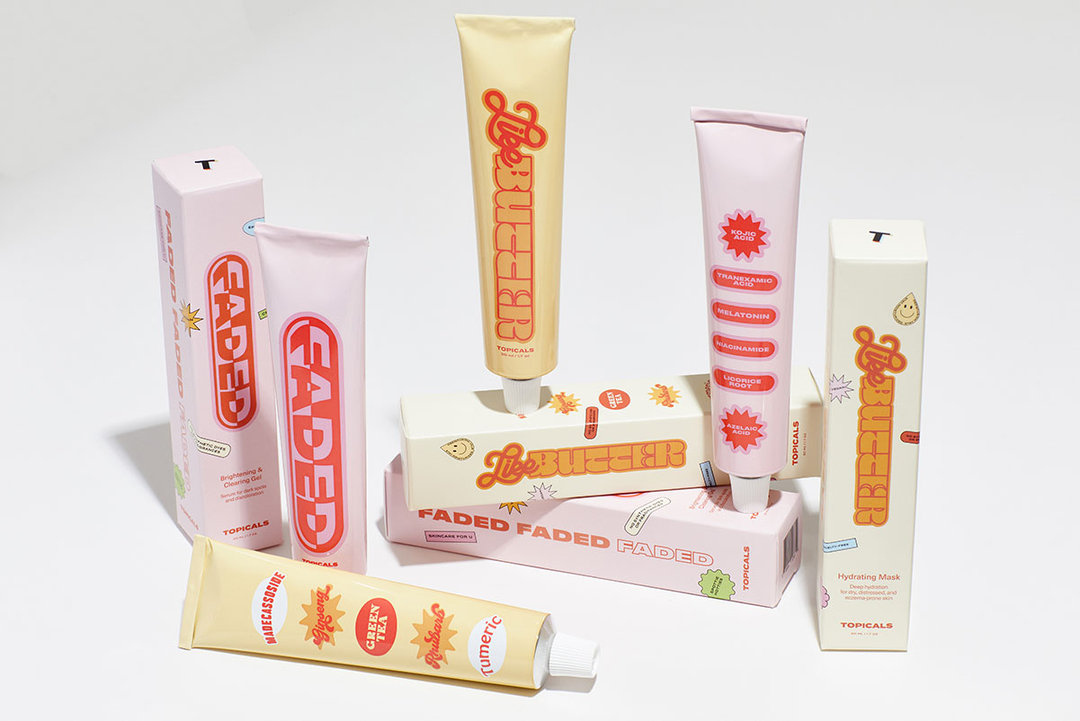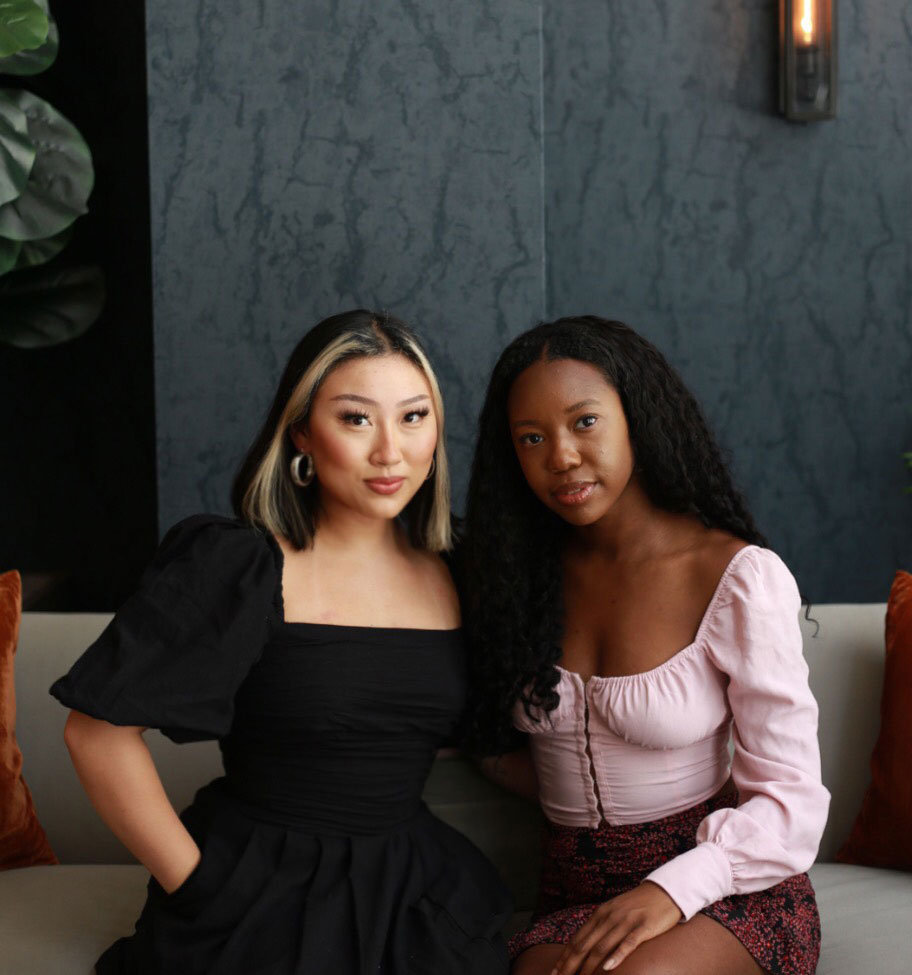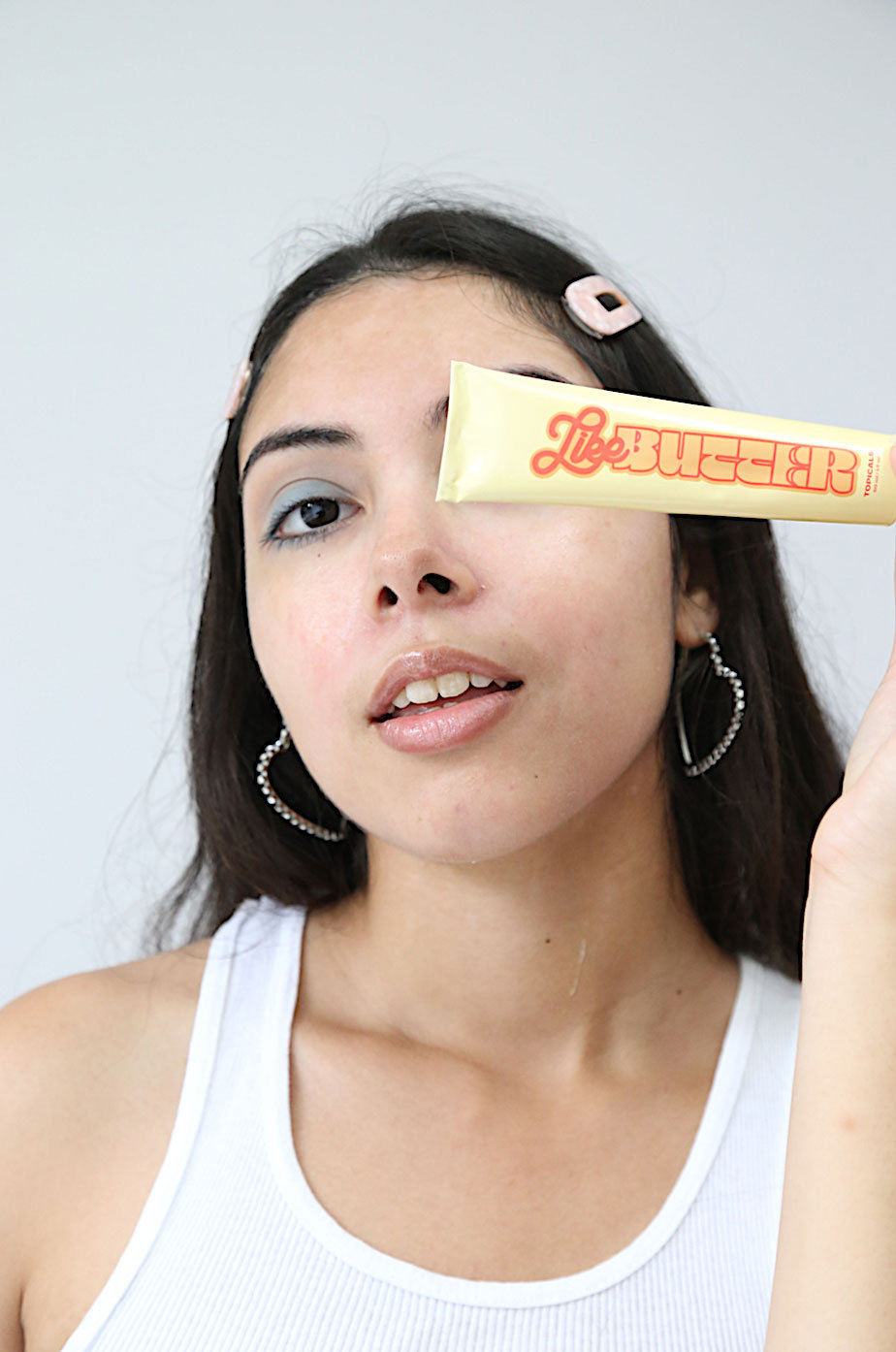Topicals: The Gen Z brand that wants you to embrace your skin as it is
Products to treat chronic skin conditions aren’t inclusive – and they certainly aren’t fun. Topicals wants to change this.

Topicals wants us to rethink chronic skin care.
FOUNDER INTERVIEW
When Olamide Olowe and Claudia Teng were growing up, they struggled with eczema and other skin flare ups (“you name it, I had it,” Olamide tells us). But as women of colour, finding decent treatments was a struggle. Skincare isn’t a one-size-fits all category, yet dermatology training often focuses on treatment for white skin tones. By launching Topicals, Olamide and Claudia hope to provide the products, knowledge and support that’s missing.
Olamide fills us in on Topicals’ ethos, and her journey as an entrepreneur.
Before Topicals, you launched another brand. Can you tell us about that?
During my sophomore year, I created a brand called SheaGIRL, in partnership with Shea Moisture, for young women of colour. We pitched to retailers like Target, Walmart and Ulta. Sundial Brands [Shea Moisture’s parent company], was acquired by Unilever during my senior year of college.
What was that experience like?
Being part of the acquisition was mind boggling. I didn’t think you could make a living from beauty – especially not that much money [Eds note: Sundial was acquired in 2017; it had previously been valued at upwards of $700m]. The Dennis family, the founders of Sundial Brands, were able to create a $100m fund for women of colour. We think about that with Topicals. How do we build our company so we can give back from day one?

The founders have raised $2.6m in funding for Topicals.
What is Topicals, in a nutshell?
We create dedicated botanicals for chronic skin conditions, starting with eczema and hyperpigmentation. We also donate a percentage of our profits to different mental health organisations. We've already donated $11,000 to date.
What’s wrong with treatments already on the market?
We've seen that ingredients like hydroquinone have actually led to permanent skin cell death for darker skin tones. Claudia leads on product innovation, and she's brilliant at using cutting edge research. We don't include ingredients [with any] troubling research around safety for darker skin tones, and we always beta test our products with people who are the lightest of skin tones all the way through to the darkest. We've had feedback from people where they're getting better results than prescription products.
[We also] take the focus off perfect skin and put the onus on having funner flare ups. When you have a chronic skin condition, it will never go away, so to sell the dream of perfect skin is just not realistic. [We’re building] an ecosystem around this customer because they don't just need support with physical products, they need it on the mental health side.

Topicals currently sells products for eczema (pictured) and hyperpigmentation.
There’s an inherent tension between the beauty industry and mental health. How do you navigate this?
There's two things. The brand philosophy is around fun and simplification. We launched [with just two products], and you'll always see us have a tight assortment because we believe in creating targeted solutions.
The second is that we don't push you to buy; that's never been our philosophy around community building. [Twitter is] our largest channel, not Instagram. That’s not normal for a beauty brand, but it’s because we’ve spent a lot of time educating customers. If you're using Web MD, maybe the language is coming above your head, and these websites very rarely if ever [show] skin conditions on people of colour. [Last week] we did a thread on skin picking and mental health, and how it’s related.
It is a fine line because we are selling products, but we empower our customers with the education that allows them to make the best decisions for themselves.
You’ve raised $2.6m in funding. What was that process like?
It took us about two years to raise the capital that we did, although a lot of the newer [investors] came through the pandemic. People saw that we had a unique concept and are both really accomplished for our age. We understood what we wanted to do, but we’re still coachable.
I hope our story and what we’re doing can allow more women of colour and more black women to get investment and get into the industry. We’re not in the minority. [There are a lot of] women of colour like ourselves who are accomplished – there are so many more people who are maybe even smarter than we are who've never had access to the networks that allow them to get investment.